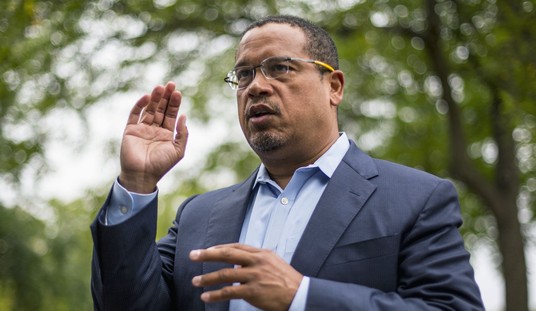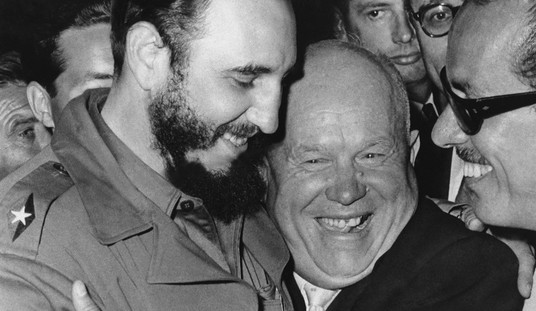On Thursday, while some celebrated the 50th anniversary of the inauguration of President John F. Kennedy and lamented the two-year anniversary of President Barack Obama’s, one anniversary slid quietly past most Americans — but not Barry Rosen. Rosen spent 444 days as a hostage in Iran, and NBC spoke with him on the 30th anniversary of his release:
Visit msnbc.com for breaking news, world news, and news about the economy
One of the lasting changes from the hostage crisis was ABC’s Nightline, which started as a late-night news program to track the progress of efforts to end the standoff. Its host, Ted Koppel, writes today that we’re still fighting “Reagan’s war,” even though as Glenn Reynolds points out, the hostages got taken on Jimmy Carter’s watch:
Um, wasn’t Jimmy Carter President when the Hostage Crisis began? And if he’d taken decisive action instead of dithering, we probably wouldn’t still be fighting this war, and doing badly enough that supporters of the current Democratic President are trying to blame Reagan. Instead, Carter temporized, much as Obama has been doing on numerous fronts. I don’t remember Koppel sounding bellicose back then, but of course I was young and might have missed it.
Bellicose? Indeed, one might think that Koppel might be singing harmony to John McCain’s “Bomb, Bomb Iran”:
That last point probably was a part of Iran’s strategic calculus. Iran was not then, and is not now, any military match for the United States. Without the American hostages in Tehran, Iran was plainly vulnerable to U.S. power.
Further complicating its position, since September 1980, Iran had been fighting a massive invasion by the Iraqi forces of Saddam Hussein, the beginnings of a bloody war that would last most of the decade. The United States officially proclaimed neutrality – Henry Kissinger famously observed that it was a shame both nations couldn’t lose – but Washington considered Iran the greater threat and covertly assisted Hussein.
Once the hostages were released, however, no reprisal came, and the Iranian leadership offered no evidence of wanting to reconcile.
In their approach to the United States in the decade that followed, the mullahs provided chilling evidence of how closely they had studied the influence of the media and public opinion on U.S. foreign policy. During the hostage crisis, they learned how obsessively engaged our news media becomes when U.S. prisoners are taken. What Americans consider one of our greatest national virtues – concern for the individual – the Iranians recognized as a vulnerability.
Well, they probably also watched Superman II and followed General Zod’s strategy. Seriously, though, Koppel leaves out an important difference between the 1979 sacking of the embassy and hostaging, and the kidnappings of Americans in Lebanon in the 1980s, which is that Iran used a terrorist group as a proxy in the latter. Very early in the 1979 crisis, the revolutionary Khomeini government dropped the pretense that the hostages were being held by “students” and admitted that they ran the show. The invasion of a recognized embassy and the capture of its staff is an overt act of war, one which never generated the proper response by the Carter administration. Very obviously, Iran understood that Reagan would have reacted quite differently and decided to pursue asymmetrical warfare in the years and decades that followed.
That’s not to say that Reagan didn’t make mistakes in handling Iran. Instead of trying to negotiate with Iran, he should have confronted them militarily during the Lebanon crises and squelched their terrorist sponsorships. But this war began under Carter, who should have wiped Khomeini and his goons off the map in 1979 when given the opportunity to do so, and calling this “Reagan’s war” is as accurate as calling Afghanistan “Obama’s war” or Vietnam “Nixon’s war.”








Join the conversation as a VIP Member